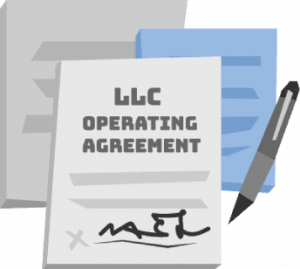How to Start an LLC in Nevada
When you register your LLC with the Nevada Secretary of State, you need to file your Articles of Organization ($75), Initial List ($150), and your business license application ($200). Your total upfront cost is $425, or $436 if you pay with a card.
If you’d rather fill out your documents yourself, you’re in luck. Check out our easy-to-follow guide below or watch a quick video on how to start your NV LLC.

1. Name Your LLC
When choosing a name for your LLC, it helps to start with the rule book. NV Revised Stat. § 86.171 says your LLC name must:
- Contain limited liability company, LLC, or an approved variation
- Be sufficiently different from the names of other Nevada businesses
- Not include words that imply certain types of business activity, like bank or architect, unless directly related to your offerings (and approved as needed)
Already know what name you want to use? Check to see if it’s available.
Yes. You can reserve your name for 90 days by submitting a Name Reservation Request to the Nevada Secretary of State. The filing fee is $25.
The business name you put on your LLC formation documents is its official name. Any other name your business uses is a fictitious name (also called a doing business as name or DBA).
To use a DBA in Nevada, you must file a Fictitious Firm Name (FFN) certificate with the county clerk where your business is located. The filing fee changes depending on the county, but most are between $20 and $25.
Want us to file your Nevada DBA for you? For just $125 + state fees, we’ll file your DBA when you hire us to form your company or be your registered agent.
Register Your NV LLC!


2. Claim Your Domain Name
Your domain name opens up a world of options. From launching a website, building social media profiles, setting up email communications, and printing business cards, there’s a whole lot of new-business stuff you can’t do until you choose a domain name.
When you choose your business domain, consider:
-
Does your domain work well with your business name?
-
Is your domain easy to remember and spell?
-
Is your domain available wherever else you want it, like social platforms, trademarks, or business name registries?
Once you have a domain you’re happy with, it’s time to claim it. When you order your domain through Northwest, we’ll also set you up with a website, custom built by our business website experts, hosted and secured through us. You can test drive that website completely free for 90 days.

3. Designate a Registered Agent
Your Nevada registered agent is responsible for accepting legal mail on behalf of your LLC. Every LLC operating in Nevada is required to have one. You can be your own registered agent, appoint another individual, or hire a registered agent service.
No matter who your registered agent is, they must adhere to certain rules. Most importantly, your registered agent needs to be available during regular business hours at a Nevada street address where they can accept service of process on your LLC’s behalf.
Yes. As long as you don’t mind your address’s presence on the public record and can maintain in-person business hours year-round, you can be your own registered agent in Nevada. For peace of mind, many business owners hire a registered agent service like Northwest.
Yes. You can change your registered agent in Nevada by filing a Statement of Change of Registered Agent with the Secretary of State and paying a $60 filing fee.

4. Submit LLC Articles of Organization
To start your LLC in Nevada, you’ll need to submit Articles of Organization to the Secretary of State alongside an Initial List and State Business License Application.
You can submit your Articles and supporting documents online, by mail, or in person. Find the required information for paper Articles below. Filing online? Similar information is required, but may appear in a different format.
- Company name. Make sure it includes limited liability company, LLC, or a variation.
- Registered agent name and street address. In addition, you must specify if they’re a commercial registered agent (like Northwest), noncommercial (an individual), or if they hold a position at your company. If they have a different mailing address, such as a P.O. Box, provide that, too.
- Registered agent signature. Your registered agent must sign to confirm they agree to the appointment. If they’re unable to sign, a Certificate of Acceptance of Appointment needs to be attached.
- Management structure. Check a box indicating whether your LLC is managed by members or managers.
- Manager info. The names and addresses (P.O. Box or street) of the people who will manage your LLC. These may or may not be LLC members.
- Dissolution date. Optional. Most LLCs don’t have a dedicated end-date. But if yours does, put it here.
- Series LLC and restricted LLC. Optional. Relevant only if you have a Series or Restricted LLC. A Nevada Series LLC is nestled under a parent LLC and maintains its own assets, liability, and interests. Restricted LLCs are unique to Nevada and are used solely for estate planning.
- Organizer. The name, address, and signature of whoever completes your Articles. Hire Northwest to form your company and our info will go here.
Additional documents:
- Initial List and State Business License Application. You need to provide a list of the names and addresses of everyone who manages your LLC. This form also serves as the Nevada State Business License Application.
- Certificate of Acceptance of Appointment by Registered Agent. This form only needs to be filled out if your registered agent is unable to sign your Articles of Organization.
If you’re filing online, Nevada’s business portal will guide you towards the appropriate state form.
It costs at least $425 to start a Nevada LLC, which includes the $75 Articles of Organization, $150 Initial List, and $200 Business License. If you file online or pay with a card, you’ll owe $436 after the 2.5% processing fee.
Nevada processes your LLC formation filing the day it’s received if you file online. Paper filings are processed in about a month.
You can file your Nevada Articles of Organization and supporting documents online, by mail, or in person.
Mail and in person:
Secretary of State
New Filings Division
401 North Carson Street
Carson City NV 89701-5708
You can form a business in Nevada even if you don’t live there, but there may not be much benefit to doing so. You’ll still be responsible for any tax obligations in the state where you file your personal return. Plus, it may be illegal to conduct primary business operations in your home state if your LLC isn’t registered there.
If your LLC was formed in another state and you want to expand operations, you can apply for foreign qualification in Nevada.
Yes. All LLCs formed in Nevada need a business license. The application is part of the Initial List, which is submitted alongside the Articles of Organization. You must renew the Nevada business license every year.
Your Nevada LLC Is Formed. What’s Next?

Write an LLC Operating Agreement
A LLC operating agreement is an internal document that puts your company’s rules and processes into writing. Your operating agreement is where you establish guidelines and standards for things like voting, dispute resolution, and initial investments.
While Nevada doesn’t require LLCs to adopt operating agreements, having one is more than just good practice. Not only does an operating agreement help your business run smoothly, it can help your LLC maintain its limited liability status in the face of a lawsuit.

Set Up Your Office
No matter what business you’re in, you need some way to organize your mail and correspondence. This could look like a brick and mortar office space that you commute to every day. Or it could mean a virtual office that goes with you no matter where you work from.
When you use a Nevada Virtual Office, you keep your business communication professional. Plus, you protect your privacy by separating your personal phone number, email, and address from your business.
Our Nevada Virtual Office service includes a phone line with a local area code, mail forwarding, a unique address at our Las Vegas office, and access to our expert Corporate Guides® for just $29 per month.
Not sure you need the whole office? Try out just Nevada Mail Forwarding, which lets you choose between same-day digital scans or weekly physical mail forwarding to keep your personal address private.

Get an EIN, Bank Account, and Funding
To keep your Nevada company functional, you need to keep your business finances organized and secure. The first step is getting an EIN, or Employer Identification Number, the number assigned to your business by the IRS for tax purposes.
Having an EIN also makes it easier to open a business bank account. This is an essential element of maintaining your LLC’s limited liability and keeping the business separate from its owners. If you mix personal and business finances, a court could revoke your limited liability protection.
Once the business bank account is set up, you need to fund your LLC. Typically all members make an initial contribution to pay for their membership interest, or percentage of ownership.

File Taxes and Reports
To ensure your LLC is on good terms with both the state and federal government, you’ll need to stay on top of these tax and reporting requirements:
- Annual List and Business License: Nevada LLCs must file an Annual List and State Business License Application with the Secretary of State, due by the end of your LLC’s anniversary month. Also called an annual report, it updates the state on your business’s ownership and contact information while renewing your business license. The total cost is $350. Worried you’ll forget? Let us file your Nevada Annual Report for you.
- Taxes: LLCs are taxed as pass-through entities by default. This means profits pass to members, who account for them on their personal tax returns. Nevada doesn’t collect personal income tax, which is good news for those looking to start an LLC in the state.
There are a few additional Nevada taxes to be aware of, which are detailed below.
There are a few tax obligations Nevada business owners need to be aware of:
- All Nevada LLCs collect the 6.85% state sales tax, as well as any additional county sales tax. To collect and pay Nevada sales tax, register with the Department of Taxation by submitting the Nevada Business Registration form or creating an online account.
- LLCs with employees file an annual Nevada Modified Business Tax Return, which is a 1.17% quarterly tax on wages. This tax kicks in after the first $50,000 in wages each quarter.
- LLCs making over $4 million in gross revenue pay a commerce tax, which varies by industry.
Maintaining accurate financial records is crucial for staying compliant with tax obligations as a Nevada LLC.
*This is informational commentary, not advice. This information is intended strictly for informational purposes and does not constitute legal advice or a substitute for legal counsel. This information is not intended to create, nor does your receipt, viewing, or use of it constitute, an attorney-client relationship. More information is available in our Terms of Service.
Ready to Start an LLC in Nevada?








